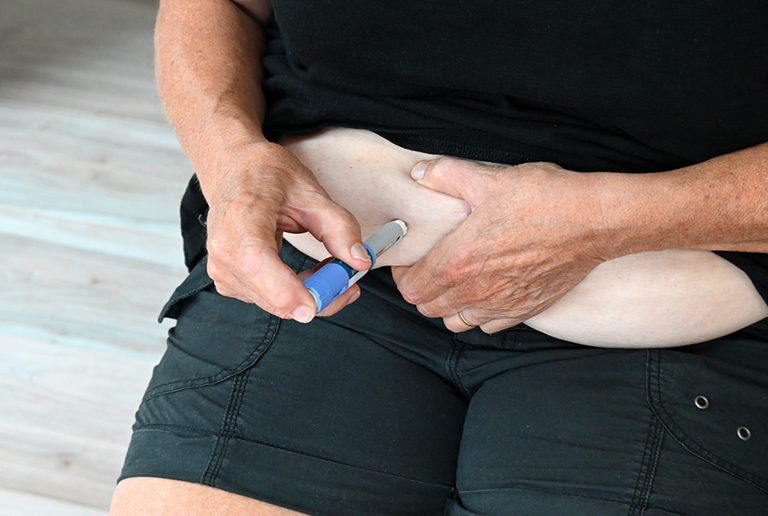The diabetes drug Mounjaro could be made available on the NHS. It's been used with diabetes patients thus far, but it could be rolled out to obese people more generally.
Mounjaro is an appetite suppressant that's been found to help patients lose up to 25% of their weight in one year...

The problem is we just don't know whether the drug is clinically effective.
Yes, it has been shown to have positive effectives in reducing weight and blood pressure, but that's no proof it is actually doing patients any good.
The NHS is proposing to roll-out weight loss jabs to thousands at first, but over the next 12 years it could offer these to thousands of people. Initially to those with a BMI of 40 or more and multiple chronic health conditions.
It has show it can help people lose 26% of their body weight in 18 months if they inject weekly.
Costs...
NB the initial cost is TERRIFYING... £150 per patient per month, and while that's not THAT high compared to some drugs, the TERRIFYING thing here is that it sounds affordable per person, but if it were given to EVERYONE that needed it with that 40 BMI score, that would mean £1.6 billion a year. (Source).
But then the estimated annual cost of obesity to the NHS is quadruple that figure at nearly £7BN. (Source).
Talk about unskilful action...
So when we are talking about obesity of this magnitude, it's not just people who have genetic conditions, inactive thyroids or whatever, no, this is mainly just people eating too much for whatever reasons, probably not helped by social pressures such as poverty and stress and then easily available junk food.
So we have a society in which the shit sinks to the bottom and people stress-eat and get fat, then we pay a drug company to sort them out (or at least have a punt at sorting them out), but will it...?
I mean maybe this drug will make people less hungry (BTW nausea and constipation are side effects, so it ain't necessarily gonna be pleasant!) but once they come off it, if their circumstances haven't changed surely they'll just get fat again, a lot of them...?
Surely What we really need to tackle obesity is a public health approach - to combat the health harms that fast food, alcohol and tobacco do to so many people in our society.
Posted Using InLeo Alpha